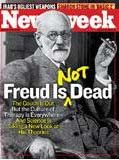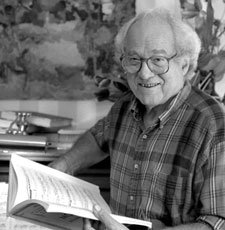
Statements of the Director General
by IAEA Director General Dr. Mohamed ElBaradei
The April 1986 accident at the Chernobyl nuclear power plant remains a painful memory in the lives of the hundreds of thousands of people who were most affected by the accident. In addition to the emergency rescue workers who died, thousands of children contracted thyroid cancer, and thousands of other individuals will eventually die of other cancers caused by the release of radiation. Vast areas of cropland, forests, rivers and urban centres were contaminated by environmental fallout. Hundreds of thousands of people were evacuated from these affected areas - forced to leave behind their homes, possessions, and livelihoods - and resettled elsewhere, in a traumatic outcome that has had long-lasting psychological and social impacts.
The commemoration of the Chernobyl tragedy is taking place in many forums this month - in Minsk, in Kiev and in other locations.
At the IAEA, it might be said that we have been responding to the accident and its consequences for twenty years, in a number of ways: first, through a variety of programmes designed to help mitigate the environmental and health consequences of the accident; second, by analyzing the lessons of what went wrong to allow such an accident to occur at all; and third, by working to prevent any such accident from occurring in the future.
Building a strong and effective global nuclear safety regime is a central objective of our work. This requires effective international cooperation. The explosions that destroyed the Unit 4 reactor core, and discharged its contents in a cloud of radionuclides, made painfully clear that the safety risks associated with nuclear and radiological activities extend beyond national borders. International cooperation on nuclear safety matters - sharing information, setting clear safety standards, assisting with safety upgrades, and reviewing operational performance - has therefore become a hallmark of IAEA activity, particularly at a time when we are witnessing an expansion of nuclear power to meet increasing energy demands in many parts of the world.
In 2001, after taking note of the conflicting views on the results of the accident, I called for the creation of a Chernobyl Forum, inviting the world´s foremost scientific experts to conduct an exhaustive assessment of the health, environmental and social impacts of the accident. As with all IAEA programmes, we emphasized an impartial, fact based approach to the analysis of this difficult and highly charged topic. I was pleased that, after a long period of careful analysis, the parties involved - including the World Health Organization and seven other specialized United Nations agencies, as well as the Governments of Belarus, Russia and Ukraine - were able to achieve consensus on the set of authoritative reports that were issued last September.
But the Chernobyl Forum had another purpose as well. My hope was that, by giving clear, impartial answers about the accident and its effects, we would be able to focus more effectively on present and future needs. Better international cooperation on assistance to the people and regions affected by the accident. Smarter approaches to safe food production and effective health care. Enhanced investments in the people concerned, in ways that would give them control over their own livelihoods.
In short, it was my hope that, by answering questions about the past, we could restore a vision of a brighter future for the regions concerned. And that remains my hope.
We will not soon forget the Chernobyl accident. We will not forget the emergency workers who gave their lives. We will not forget the health and environmental consequences. And we should never forget the lessons we learned regarding nuclear safety and international cooperation. In remembering the Chernobyl accident, we should renew our determination to ensure that such a tragedy will not happen again.
But we must also remember the survivors, the individuals and communities who seek to move forward with their lives and the lives of their children. At this time of remembrance, they too deserve our attention and assistance, so that they will be able to move beyond the shadow of the Chernobyl accident and into a prosperous future.
Copyright 2003-2005, International Atomic Energy Agency, P.O. Box 100, Wagramer Strasse 5, A-1400 Vienna, Austria Telephone (+431) 2600-0; Facsimilie (+431) 2600-7; E-mail: Official.Mail@iaea.org
IEA Additional Coverage





